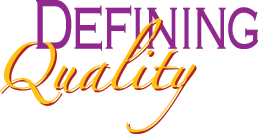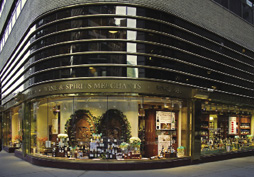- Home
- Media Kit
- Current Issue
- Past Issues
- Ad Specs-Submission
- Ad Print Settings
- Reprints (PDF)
- Photo Specifications (PDF)
- Contact Us

![]()
ONLINE

Celebrating 75 Years of Quality
Editors’ Note
Chris Adams began his career at Sherry-Lehmann as a part-time sales associate during the holiday season in 1997, an experience which prompted him to change his life’s course and become a full time employee at Sherry-Lehmann. He then became a general manager, Managing Director, and Executive Vice President, before assuming his current post, as the company’s Chief Executive Officer.
Company Brief
Long renowned for its commitment to providing excellent products and service, Sherry-Lehmann (www.Sherry-Lehmann.com) was founded in 1934, and is currently in its 75th year of business. Catering to wine pundits and amateurs alike, the Sherry-Lehmann store combines old-world charm with modern sophistication. Sherry-Lehmann is consistently rated the number one wine shop in New York by the Zagat Survey, and referred to as the most ‘justly celebrated wine store in the nation’ by Vanity Fair. Their new store is located on 505 Park Avenue in New York.
Sherry-Lehmann is celebrating its 75th anniversary this year. Will you take us briefly through the evolution of the brand and where Sherry-Lehmann is today?
It was started by Jack Aaron as a small store at 62nd and Madison in the Louis Sherry building – that’s where we got our name. Jack was a bootlegger during prohibition. The store opened in March of 1934, and about a year later, his brother, Sam Aaron, joined the business. In the ’30s and ’40s, it was a liquor store selling gin, vodka, and whiskey. Not too long into the early ’40s, Sam Aaron befriended James Beard, who subsequently worked as a consultant for Sherry-Lehmann for decades. James and Sam started taking trips together to France, and got really interested in wine. They started to bring wine to the forefront of the business, which was tough since the focus was on hard alcohol at the time. But tastes got more sophisticated in the ’40s and ’50s, and Sam and James along with Michael Aaron began purchasing and promoting French wines including Burgundy, Bordeaux, and Champagne as well as wines from Alsace in our catalogs. In the ’60s, ’70s, and ’80s, Michael and Sam began to heavily promote Bordeaux. The first vintage on which we offered Bordeaux Futures was 1959. The store quickly became a point of reference for fine French wines. With the purchase of Lehmann and Company, which was a fine wine store up the street in 1965, we became Sherry-Lehmann.
In terms of positioning for Sherry-Lehmann and the maintenance of the brand share, there are two things: we were identified with the great wines in Europe, and we always focused on affordable table wines. For all the bottles of wine that Sherry-Lehmann sells each year, the vast majority of them are wines to be consumed at the table that evening. So what we offer is something that’s distinctive and special, but also accessible. We take the same good care of a $5 bottle of wine as we do of a $500 bottle of wine. We’ve tried to cultivate the idea that Sherry-Lehmann means quality, and that there is a point of access for everybody.

Sherry-Lehmann’s new store
at 505 Park Avenue in New York
Today, with so many evolving brands, the wine marketplace can be very confusing. Do you use the Internet as a vehicle for educating your consumers, and is that a key role for your staff?
Yes. There are generations of New Yorkers and people across the country who have learned about wine by reading our catalog for decades. The catalog continues to be a focus for us because it is something tangible and enjoyable for our customers to read. The nice thing about the Internet is that we can showcase every product. People can search for us and search for information on particular wines. Every week, the staff participates in tastings with our staff educator, Robin Kelley O’Connor. By encouraging our employees to taste in a controlled, professional environment, eight or nine wines a week, they are able to truly understand and appreciate our offerings and the market. And as in any business, customers seek a match with a salesperson. When I started in 1997, I sat for five days with Michael Aaron listening and tasting at 679 Madison. I didn’t sell a bottle of wine for five days. We make sure our staff understands the difference between an $8 bottle and an $800 bottle. That’s not something that’s easy to compress into four or five days, but you have to make the effort. So education is critical.
You tried to bring some of the history and tradition of the old store to the new store, but have also given it a modern feel. Are you happy with the end product?
We’re very happy. We’ve installed the same technology in our new store that we use to manage our inventory in our Brooklyn warehouse, so we’re able to retrieve bottles quickly and efficiently, with impeccable control. But in some respects, you can’t replace 60 years of being in a place; there is something that is going to be lost. So we intend to work on the character of the new place.
Will you provide a brief overview of your warehouse in Brooklyn and the role it has played in the business?
The vast majority of our goods and transactions are processed in Brooklyn. We have installed huge air-conditioned units, which regulate temperature and humidity. There is a bottle room for picking bottles and a case room for picking cases. We are able to submit orders from the store to the warehouse electronically, and we have a fleet of trucks that serve the city, Westchester and Nassau, and the Hamptons during the summer. FedEx is a great partner of ours for the rest of the state and country.
Does the range of product you’re offering remain relatively consistent? Is it challenging to manage?
No. We went into this downturn with the largest inventory in Sherry-Lehmann’s history, which was an advantage for us because we could step back from aggressive buying and start to work down the inventory. We’re also making sure that if we add a new product in this economy, it’s with a partner with whom we have a solid track record. Of course, our business is also highly customer oriented, so I have customers for whom I special order wines several times a year.
As the business has evolved, and with you now leading the company, how challenging is it to budget your time?
It is challenging, but I try to find balance. It is a highly regulated industry, and one which requires travel. But it’s an incredible opportunity to take care of something that has been meticulously maintained for 75 years.